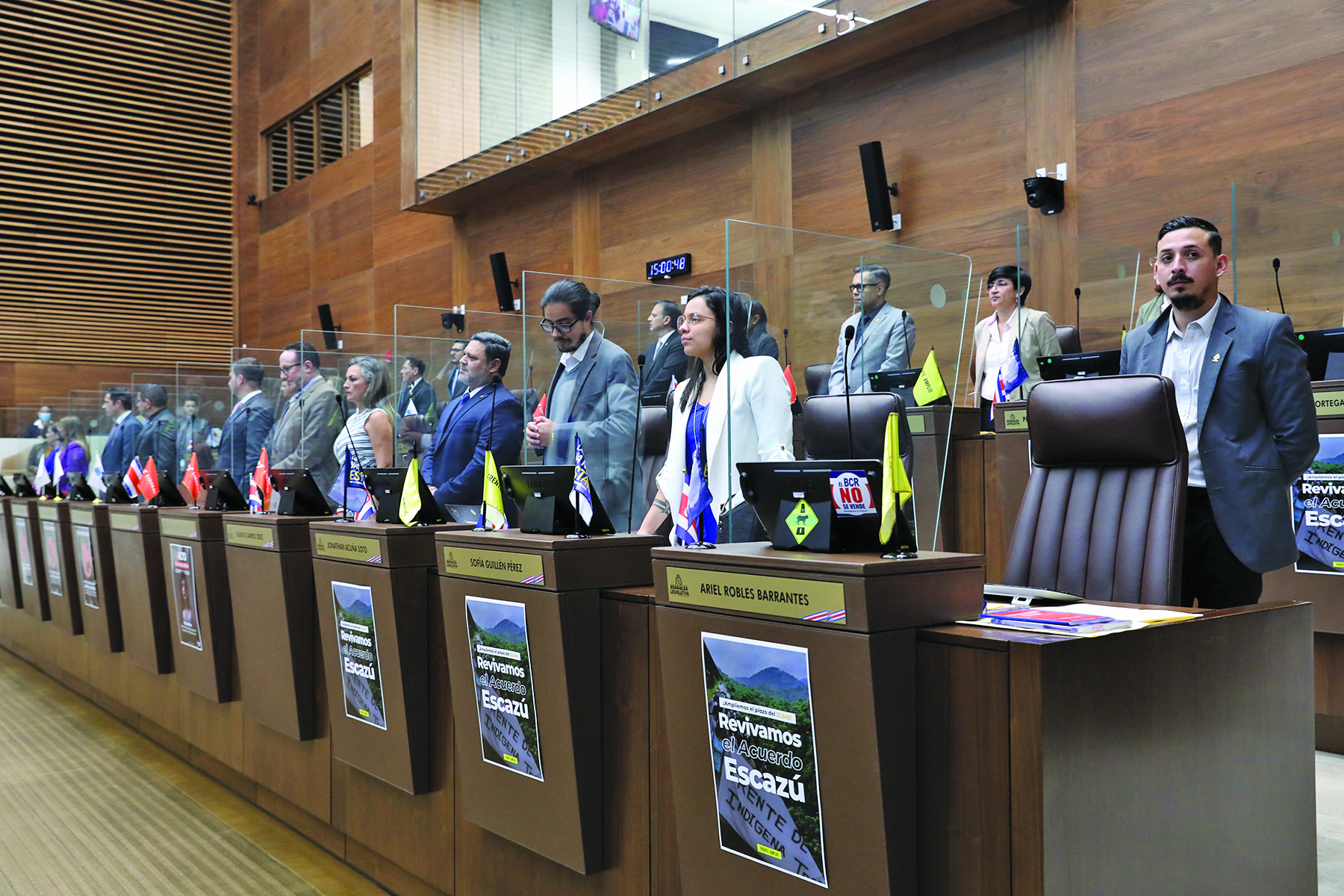
Central America
Costa Rica shuns first regional environmental treaty
March 2, 2023 By Michael McDonald
Costa Rican lawmakers on Feb. 1 voted to keep the first regional environmental treaty in Latin America and the Caribbean off the legislative agenda, effectively killing the chances that the agreement will be ratified by the country that hosted its adoption.
The Escazú Accord was adopted in 2018 in a Costa Rican community of the same name at a regional summit of representatives from 24 Latin American and Caribbean countries. Ultimately signed by 25 of a possible 33 countries and ratified thus far by 14, the treaty took force in 2021 and is now in the implementation phase.
A prime goal of the treaty is to boost public access to environmental information on development plans, the aim being to ensure that decision-making on such projects is more transparent and reflects greater social consensus. Another is to promote enhanced legal protection for environmental activists, who have become frequent targets of violence in the region.
Costa Rica appeared poised to ratify the Escazú agreement after hosting its adoption and signing it in 2018 under then-President Carlos Alvarado. But Alvarado couldn’t muster sufficient support for ratification in Costa Rica’s unicameral Legislative Assembly. He did not force a final vote on the matter, preferring to leave the bill pending so as not to risk its definitive defeat.
Change of course
Alvarado’s conservative successor, current President Rodrigo Chaves, took a position against ratification, however, arguing the treaty would hinder economic development.
Against that backdrop, the Legislative Assembly voted 41 to 11 on Feb. 1 to remove the proposed ratification bill from the Assembly’s docket, formally shelving it. In order for the matter to come back before lawmakers, the executive branch would have to formally present a new bill to the Legislative Assembly, something Chaves has vowed he will not do.
Costa Rica’s vote against taking up the treaty won applause from the business community but drew criticism locally and abroad.
“In the midst of a global environmental crisis, it’s sad to see how Costa Rica has distanced itself from its previous position as an environmental leader,” UN Special Rapporteur on Human Rights and the Environment David Boyd said in a public statement. “I hope the millions of Costa Ricans that passionately defend the right to a healthy environment push ahead despite the government’s backtracking.”
Treaty opponents argue Costa Rica’s existing laws already ensure access to information and legal protection for environmentalists. They say that allowing environmental disputes over development projects to be elevated to international courts, as the Escazú Accord might do, could hamper economic growth at a time of high unemployment.
“Costa Rican legislation already has the necessary provisions, so the Escazú accord doesn’t add anything new,” says Legislative Assembly member Eliécer Feinzaig, who opposes ratification of the treaty. “Costa Rica has become a country where being an entrepreneur and developing public or private projects is very difficult. There is a lot of tedious bureaucracy and multiple levels of appeals, which greatly delays things like infrastructure or real estate development.”
Costa Rican Minister of Environment and Energy Franz Tattenbach agrees that the treaty would slow business and asserts the country’s constitution provides adequate rights protections. Costa Rica’s main private-business chamber, UCCAEP, called the Legislative Assembly’s decision to archive the treaty a “responsible choice that will strengthen legal certainty and improve the business climate.”
‘Myths’ alleged
But lawmaker Jonathan Acuña, who supports ratification, dismisses arguments that the treaty will slow economic growth as “myths.” He cites studies by the United Nations Economic Commission on Latin America and the Caribbean and the Organization for Economic Cooperation and Development that forecast the agreement will help attract sustainable, long-term investment to the region.
Environmentalists argue that the vote undermines the pioneering environmental reputation Costa Rica has gained worldwide by reversing deforestation and setting ambitious climate-policy targets. Katherine Arroyo Arce, head of the political department of MarViva, a marine conservation nonprofit, says Latin America’s history of social conflict over extraction projects points up a need for transparency and enforcement of environmental rights.
The treaty, she says, is essential to protecting environmental activists in the region.
“It’s the first time that this obligation has been put in a binding treaty and responds to the growing involvement of organized crime and corruption against environmental defenders,” she said, adding that Costa Rica’s own legislation is often lacking in such protections. “It’s true that Costa Rica has a broad environmental legal framework, but it’s often ineffective, and the growing number of social-environmental conflicts highlight that.”
This story was republished with permission from EcoAméricas.





